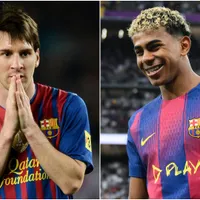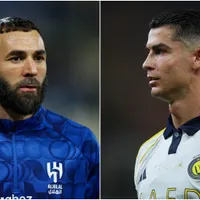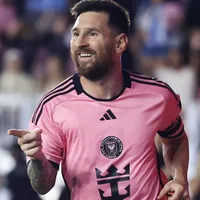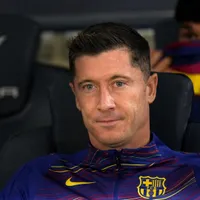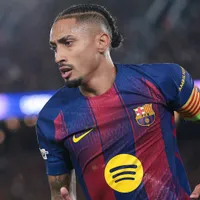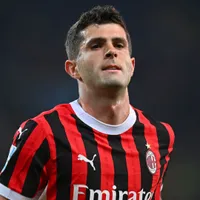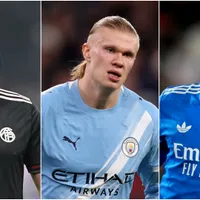Nicolas Anelka always stirs up conversation, which is exemplary of his career that brought much success and controversy. Netflix’s latest soccer documentary, Anelka: Misunderstood, directed by French director Franck Nataf, explores Anelka’s career from his own perspective and of those that were close to him. Featured in the film are Thierry Henry, Arsene Wenger, Robert Pires, Patrick Vieira, and many more; including some of his closest friends and family. Anelka was known as a player that had plenty of talent potential but was also considered a bad boy with a sharp temperament and a complicated attitude. This documentary gives us a perspective on why Anelka acted the way he did throughout his career.
The film starts out in Dubai, where the now retired Anelka lives with his family. He shares that he is content with life in Dubai because he is able to live a quiet life with his family where his children can grow up without the chaos of media attention. Before we learn about his childhood, he mentions that after a 20-year playing career, one starts to look back and either feel proud of what you did or feel like you were a victim that was pushed around for 20 years. He says he does not want to feel the latter.
Anelka is from the Trappes neighborhood in the suburbs of Paris. His parents are from the French Caribbean territory of Martinique and both were workers in civil society; his mom worked in a high school and his dad worked at the board of education. Anelka said he lived a pleasant childhood but that he wasn’t a rich privileged kid either.
Anelka started playing on the streets with his neighborhood friends and then went on to play organized soccer with the Trappes academy at 8 years-old. He was obsessed with soccer and mostly wanted to follow the path of his older brother, Claude, who made it professionally in the lower levels of French football. The difference with he and his brother was that Nicolas got into Clairefontaine, the famed youth academy ran by the French Football Federation, at age 13; so he was destined to succeed at a high level.
Clairefontaine was a very cutthroat environment, with everyone trying to be the best and competing to be spotted by scouts and professional clubs. Anelka excelled in this environment and developed as a very talented striker. It wasn’t long before PSG recruited him and he made his professional debut at age 16 in 1995 without actually being a professional because he did not have a professional contract with PSG at the time. He trained with the professional players and learned from the likes of George Weah. Anelka trained with the mentality that he was the best player on the training pitch, even as a young prospect. He scored on his debut and attracted attention from clubs across Europe who wanted to sign him.
The controversies began when Anelka tried to transfer to Arsenal in 1997, after being scouted and recruited by Wenger to join the Gunners. Anelka signed with Arsenal after feeling that he was not appreciated at PSG because of his lack of playing time. The problem was with the French Football Federation’s rule requiring academy players’ first contract to be with the club that they are with. It became a legal battle but Anelka’s case won because of the Bosman ruling, which allows for the free transfer of players across Europe if they are not under contract. This legal battle became a huge news story across France and initiated Anelka with media controversy.
SEE MORE: Top 10 soccer documentaries for fútbol fans
Anelka started off slowly with Arsenal but he had a manager in Wenger and a fellow teammate and Frenchman in Patrick Vieira who both believed in him and were willing to help him feel comfortable in London. This is encapsulated in a part in the film where Wenger talks about how Anelka almost abandoned the team because he wasn’t playing much but he convinced him to show up with the team for the game and he ends up scoring in that match. He became one of the main Arsenal strikers and won three Premier League titles in his career with the Gunners.
It is after he left Arsenal for Real Madrid that his career started to become destabilized. He landed in a crazed media environment where everyone wanted a piece of him and he was never one to be open to the media, and that was a shock to him. According to Anelka, the team environment was very negative because his teammates were not welcoming, and treated him badly like they wanted nothing to do with him. He failed to score in the first five months of the season, adding much more media scrutiny.
He lost trust with the media when Marca invited him to come to their offices for a profile and they had him play the FIFA video game. He scored in the video game and the next day Marca’s front page shows a headline mocking Anelka by saying that he finally scored a goal for Real Madrid but only in a video game. Anelka was furious and stated that he would never trust the media again after that incident.
He eventually started scoring goals but he also had some average games as well. His time at Real Madrid was made worse when he refused to train with the team when they refused to let him have a meeting with the coaching staff and club after he was benched. He stated that he had this “street mentality” at the time where he would not submit. That controversy subsided and he eventually played a big part in Real Madrid’s Champions League winning campaign in 2000.
The Frenchman went on to play for a variety of different clubs but didn’t really stabilize himself. The closest he was to stability was at Chelsea where he helped the club reach the 2008 Champions League Final in Moscow against Manchester United but he missed the penalty that gave United the win. He stated that it continued to haunt him and he can never get over the disappointment of that loss.
As the documentary goes on, it becomes really just an explanation of controversial moments in his career from his perspective only. The opposing side of the argument are not mentioned.
A clear example is his time at West Brom where he disparaged Steve Clarke for subbing him off of a game that was 0-0, saying that Clarke had a personal dislike for him and that he felt disrespected by the substitution. Clarke eventually got sacked and then in Anelka’s first game without Clarke, he scored a goal and does the quenelle gesture as a celebration. This was viewed in France as an anti-semitic hand gesture because it can be an inverted Nazi salute but Anelka claimed it was aimed at Clarke for his refusal to play him. Again, you don’t get to hear the opposing viewpoint from Clarke.
Overall, Anelka: Misunderstood tries too hard to convince the viewer that everything Anelka did was justified and that every time he didn’t play a game it was the coach’s fault. One gets the sense that Anelka does not like any authority figure, especially coaches.
When the documentary comes to Anelka’s time with the French national team, it’s easy to sympathize with him. He was one of the last footballers cut from the French squad that went on to win the 1998 World Cup. Then when he was part of the Euro 2000 winning team, he played poorly and felt he didn’t deserve a winner’s medal. Then when it came to the 2010 World Cup scandal where he left the team after a spat with coach Raymond Domenech, he was accused of being disrespectful and almost to the point of assaulting the French manager. Anelka was removed from the team, and the players refused to train out of protest, causing a bigger media circus. Anelka was made out to be the villain but the player’s testimonies and an eventual confession from Domenech about what really happened say otherwise and clear Anelka of any wrongdoing.
The 2010 World Cup incident was the climax of the film because Anelka was the center of the whole controversy that made international headlines and it even reached a national political level where politicians and even the President were criticizing his supposed actions. It is at this point of the film that you feel that he was unjustly attacked.
When watching this documentary, it’s best to go with the idea that it will be Anelka’s story and his side of the story only. It can be off putting for some because it may seem like he plays victim a lot and throws fits when he doesn’t get playing time but there are parts of the film where you can agree with his grievances, such as in the Marca incident.
Once you get past that aspect of the documentary, it really is an interesting look at a player the public never really got to know as well because he was always surrounded by controversy. Anelka would say this is a look into his side of the story that the media never wanted to cover because he was disliked by them.
Whichever way you look at it, Anelka: Misunderstood is a must-watch for die-hard soccer fans who want a better look into one of our generation’s most compelling footballers.

